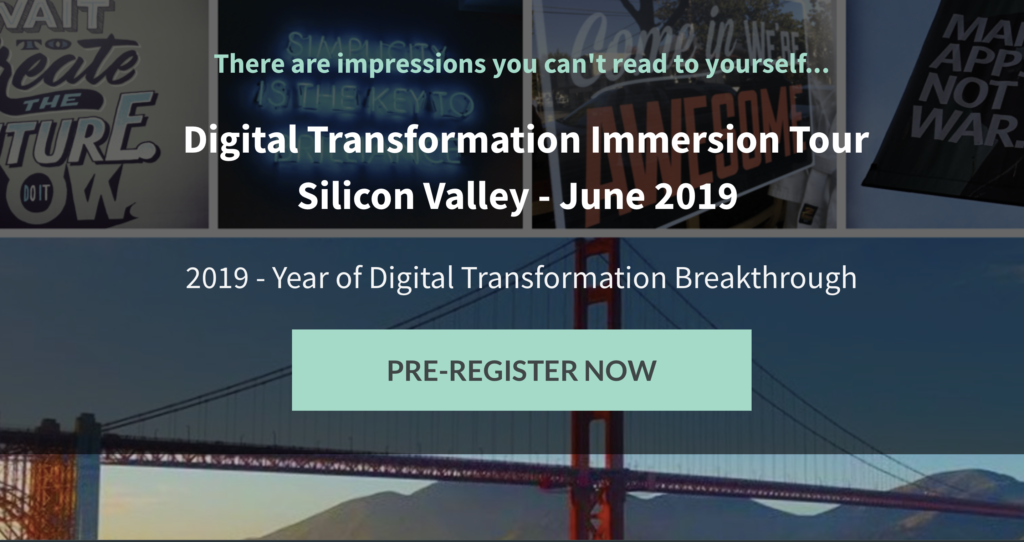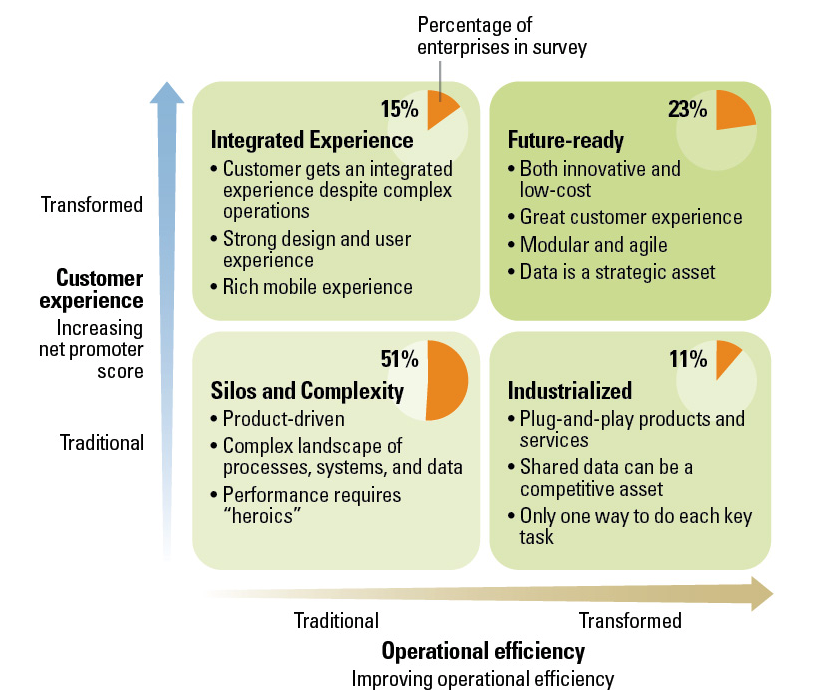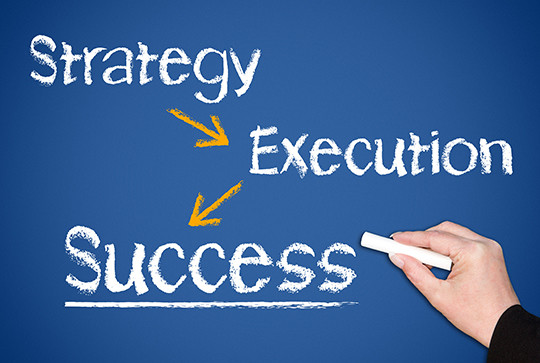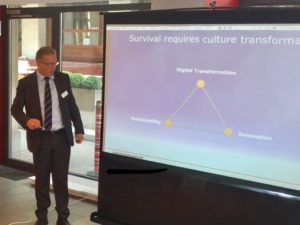Swedish-Swiss Business Forum – Artificial Intelligence, Zurich
- posted in AI, Business Transformation, Change Management, Digital Transformation, Leadership, Strategy Execution
- / with 0 comments
This article is about my summary and reflexions from the excellent Swedish-Swiss Business Forum on Jan 31,

The Business Forum was opened by Eva Fiorenzoni, Managing Director, Swedish Swiss Chamber of Commerce, greeting the speakers and the participants.
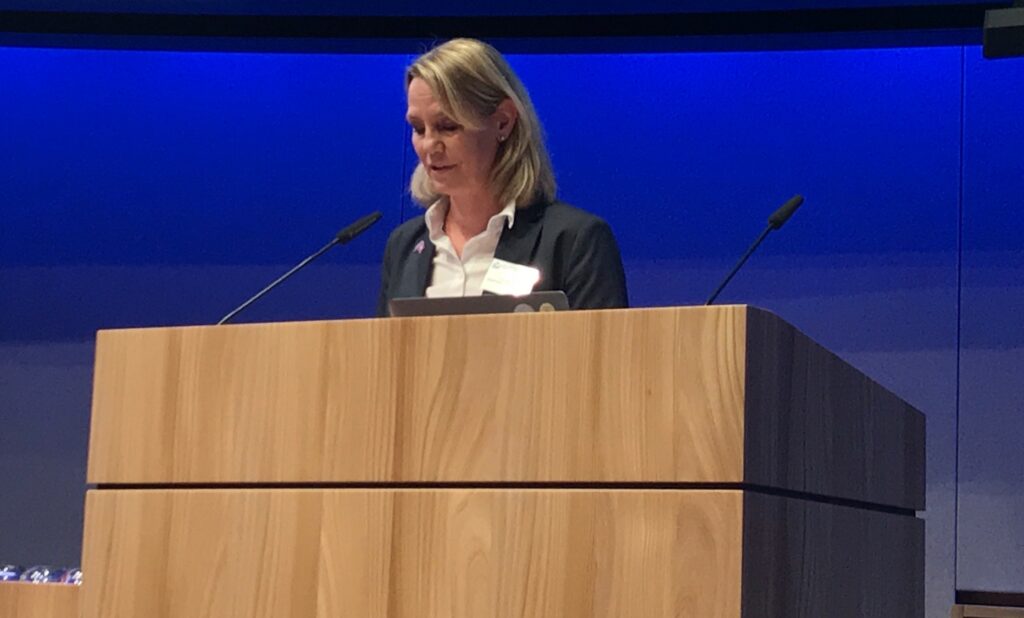
Deep Learning – the Engine of Modern Artificial Intelligence
The first speaker, Damian Borth spoke on the subject of “Artificial Intelligence: Deep Learning – the Engine of Modern Artificial Intelligence”.

Artificial Intelligence is becoming part of our Pop-Culture. We need to change the image and embrace it.
The evolution of Artificial Intelligence will depend on the relationship AI – ML (Machine Learning) – DL (Deep Learning)
Talent Management is a rapidly increasing issue since AI requires Machine Learning; to that effect huge amounts of AI experts are needed, i.e. in Germany only, 5000 AI experts were needed in 2017 vs. the worldwide supply of the same was 22000 that year. So, to some extent, the speed of AI evolution will depend on on the availability of these experts.
Artificial Intelligence at the core of business
Kye Andersson, Head of Brand & Communication, Peltarion, confirmed the previous speaker’s focal point that AI is about Deep Learning and Neural Networks. As a fact, Deep Learning is already here, i.e. Google, Siri, to name a few.

AI will be used everywhere in our lives and the speed of change will increase dramatically over the next years, also due to the ongoing digitalisation of our society. AI will impact the entire value chain in any industry and in profound ways change the ways we are doing things.

Two obstacles for business to become “AI First”:

Another topic discussed by Kye Andersson once again, was the enormous amount of talent needed with data science skills. The U.S. has today around 35.000 people with data science skills, and 700.000 more are needed by 2020, in the U.S. alone.
The key question is about who are the winners?
The winners in every single industry worldwide, will be those who operationalise AI

Tapping the potential of AI as an industry leader
“Deliver value in every single part of the value chain with AI”, says Otto Preiss, Chief Operating Officer Digital, ABB. AI is the key to enable ABB’s vision. With AI, the vision to provide the industrial processes with muscles will become a reality, by starting to use autonomous systems. In the past, systems required programming, now it’s about teaching the systems and in the future systems will learn what to do autonomously. The difference between automated and autonomous systems is to create a bigger picture: Perceive, Understand, Solve versus Analyse, Act, Sense.
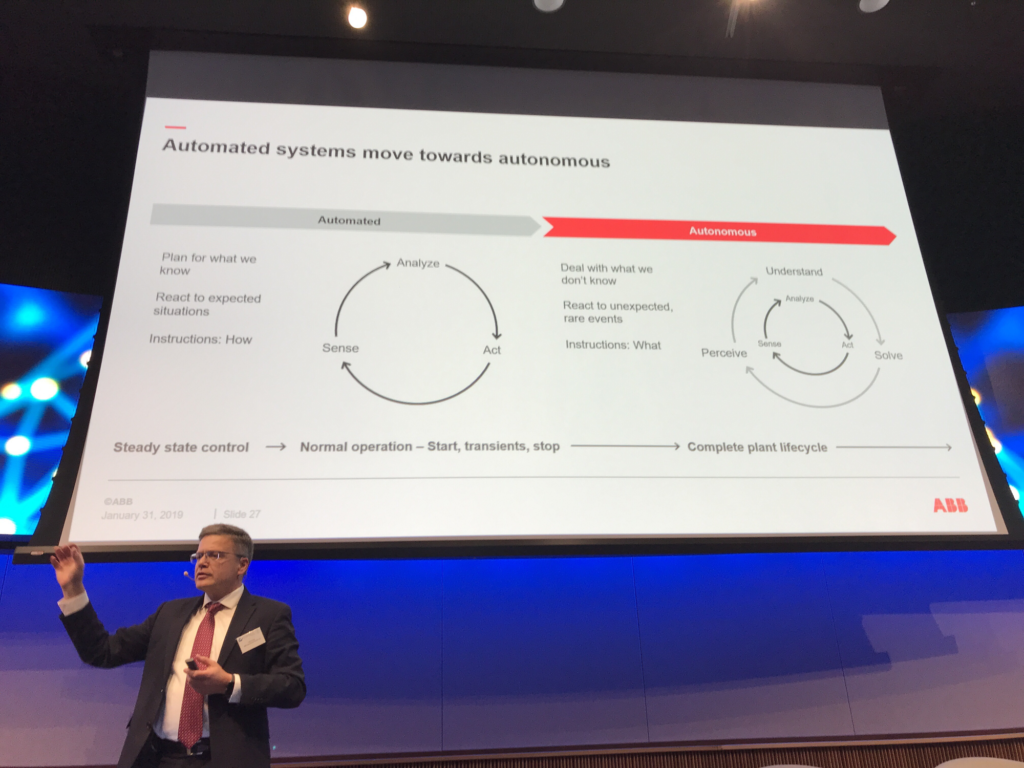
AI in Banking: Key learnings for the future
Annika Schröder, Executive Director, UBS Group Technology explained how AI may be used in the Banking sector.
Creating ideal, customized investment strategies for specific customers, Compliance and Cyber Security as well as ML (Machine Learning) systems to detect patterns in Big Data that humans would not be able to discover are examples of how AI can be used. Banks are also using ML systems to discover behaviours indicating potential money laundering transactions. Combined with other technologies, the potential of AI is huge. For instance, innovative, smart services and products can be created with Blockchain technology, combined with AI.

AI – Key to Autonomous Driving
One area that AI will affect is self-driving cars, said Dennis Nobelius, CEO Zenuity. A self-driving car has a very large computing power that uses neural networks to understand the outside world. The implication is that the networks are the foundation for the car’s position.
To cope with all this, the car is equipped with a variety of sensors, cameras, radar, laser, GPS receiver and a supercomputer. The car also communicates with service functions in the Cloud.
“In the process of developing self-driving cars, a very high level of safety is the most important thing,” said Dennis Nobelius. There are also ethical aspects that must be taken into account. Within 5 years, there should be an enormous potential for self-driving cars.

Panel debate
A panel debate with the speakers and moderated by Damian Borth wrapped up the Business Forum. The discussed topics where:
- Use AI to augment the Human, not replacing it, just taking out the tedious work.
- Regulation is a challenge; it’s important to tackle this issue with the lenses of the regulator.
- How to deal with Data Privacy: A Data Manifesto has to be implemented, for real.
- Who owns the data and whom monetizes on that?
- Can machines be rewarded? Winning reinforces the machines behaviours but chemical processes in human brains cannot be copied, can only be a learned behaviour.
- Last, the panel was asked by when a robot will be able to dream. The answers differed between “not possible” to end of the 21st century.
Conclusions
The Chairman of the Board for the Swedish-Swiss Chamber of Commerce (SSCC), Hans Ueli Märki, closed the Business Forum concluding that every job will change because of AI and with a final remark:
Drive the change or be driven by it (disappearing)
Summary with my reflexions
Throughout the Business Forum, the main repeating topics are the scarcity of AI experts (programming the machines), AI will affect all jobs to some extent and that AI will have an impact on the entire value chain. Someone at Google said that AI is bigger than fire and electricity, I think this may be correct. At least one aspect is pretty clear, disruptive change is already here and will keep accelerating at an astounding pace, already this year.
The speed of AI adoption will depend on several factors. Some of them are: Partnerships and other alliances in new ecosystems (startups mixed with existing companies) to reduce the impact related to the scarcity of AI experts and the wide spread availability of 5G networks because of the enormous data amount to be transmitted to/from the Cloud. The players that are in the driving seat are the network owners.
Finally, I am convinced that AI will change EVERYTHING. This requires companies and organisations to transform their culture towards organisational agility. The house is on fire, believe it or not, since it is predicted that towards the middle of the coming decade, many companies will have disappeared.
So my question to you is, Dear Boards and Management Teams, if you want to survive and remain competitive? It’s time to act, now.
#AI #digitaltransformation #leadership #culturetransformation #futureisnow #SSCC #prosensitchange

I am Christian de Loës, founder of Prosensit Change Management, a Digital Business Transformation Leader & Interim Manager, Change Advisor/Agent, Speaker and Lecturer with 30 years international senior leadership experience in Sales & Marketing, Portfolio-, Program- & Project Management and Business Change Management internationally. I am passionate about helping mid-sized SME Board members & C-level executives to enable culture transformation by supporting them to bridge the gap between strategy & execution, including Change Management.



